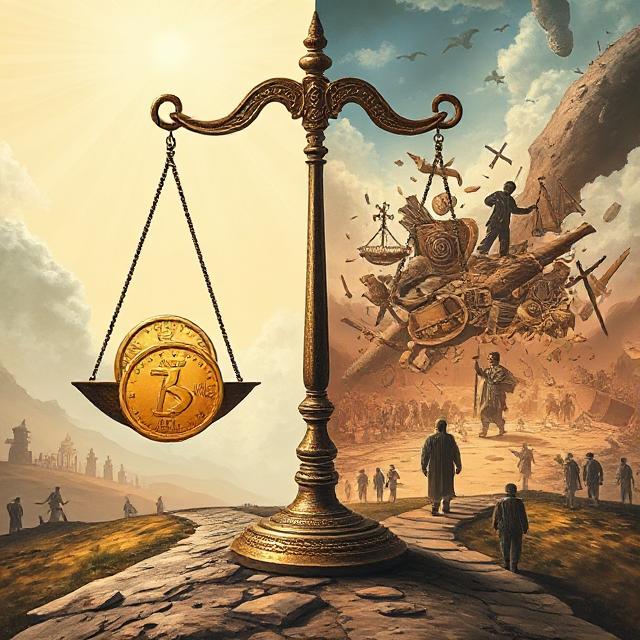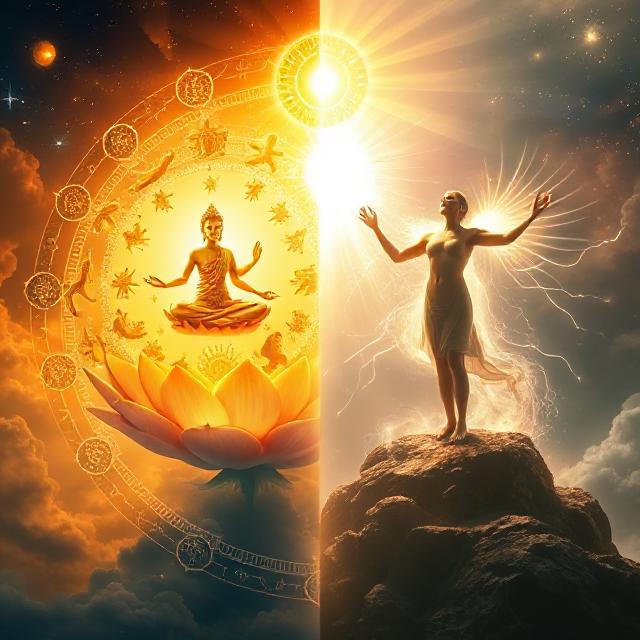Category: Branches of Philosophy
-
Is Stealing Always Wrong? Moral Perspectives Explained

Is Stealing Always Wrong? Moral Perspectives Explained Is stealing always wrong? It seems like a straightforward question with an obvious answer: “Yes.” But the moment we examine real-world scenarios, historical contexts, and moral philosophies, the certainty begins to dissolve. What if you’re stealing bread to feed your starving child? What if the item was unfairly…
-
Deontology vs Consequentialism: What Is the Most Ethical Theory?

Deontology vs Consequentialism: What Is the Most Ethical Theory? Deontology vs consequentialism is one of the most enduring debates in moral philosophy. These two ethical theories offer fundamentally different approaches to answering the question: What makes an action right or wrong? One looks to the duty behind the action, the other to the results it…
-
Moral Absolutism vs Relativism: Which Makes More Sense?

Moral Absolutism vs Relativism: Which Makes More Sense? Moral absolutism vs relativism is one of the most persistent and polarizing debates in the field of ethics. It touches the core of how we justify right and wrong, how societies enforce moral codes, and whether ethics can be universal or are shaped entirely by context. At…
-
Is Utilitarianism Flawed? Ethical Pros and Cons

Is Utilitarianism Flawed? Ethical Pros and Cons Is utilitarianism flawed? This enduring question cuts to the heart of moral philosophy. Utilitarianism has been one of the most influential ethical theories in modern thought, yet it continues to provoke debate and controversy. Is it a comprehensive guide to moral reasoning, or does it leave too much…
-
Can Ends Ever Justify Means?

Can Ends Ever Justify Means? The phrase “ends justify means” ignites one of the most heated debates in ethical philosophy. It asks whether it is acceptable to use unethical methods to achieve a morally desirable outcome. The question is not merely academic—it has guided revolutions, military strategies, medical experimentation, and social policy. From Machiavelli’s cold…
-
Intuition vs Logic in Eastern vs Western Methods

Intuition vs Logic in Eastern vs Western Methods Intuition vs logic in Eastern vs Western methods reflects a fundamental divergence in how human beings approach truth, knowledge, and problem-solving. While the West often privileges analytical reasoning, formal logic, and empirical verification, the East tends to emphasize intuition, holistic understanding, and experiential insight. This comparison isn’t…
-
Meditation vs Contemplation: East Meets West

Meditation vs Contemplation: East Meets West Meditation vs contemplation may seem like a subtle linguistic distinction, but it actually reveals a deep philosophical divide between Eastern and Western approaches to inner transformation. These two practices are often viewed interchangeably in pop culture, yet they emerge from distinct worldviews with unique intentions, methods, and outcomes. To…
-
Rebirth vs Resurrection: Metaphysical Implications Explained

Rebirth vs Resurrection: Metaphysical Implications Explained What happens after we die? Two major answers dominate the religious and philosophical imagination: rebirth and resurrection. Though often used interchangeably in casual conversation, these concepts point to profoundly different metaphysical systems. Comparing rebirth vs resurrection is not just a matter of theology, but a window into how cultures…
-
Detachment in Zen vs Passion in Nietzsche

Detachment in Zen vs Passion in Nietzsche Detachment in Zen vs passion in Nietzsche presents one of the most fascinating contrasts in philosophy. These are not just abstract doctrines—they are full-blown ways of life. One urges silence, simplicity, and the shedding of the self. The other demands fire, intensity, and a willful embrace of becoming.…
-
Moral Authority in Confucianism vs Social Contract Theory

Moral Authority in Confucianism vs Social Contract Theory Moral authority in Confucianism vs social contract theory is not just a question of East versus West, but a profound inquiry into the roots of legitimacy, obligation, and the very idea of justice. Does morality flow from tradition and hierarchy, as Confucius taught, or from individual consent…
